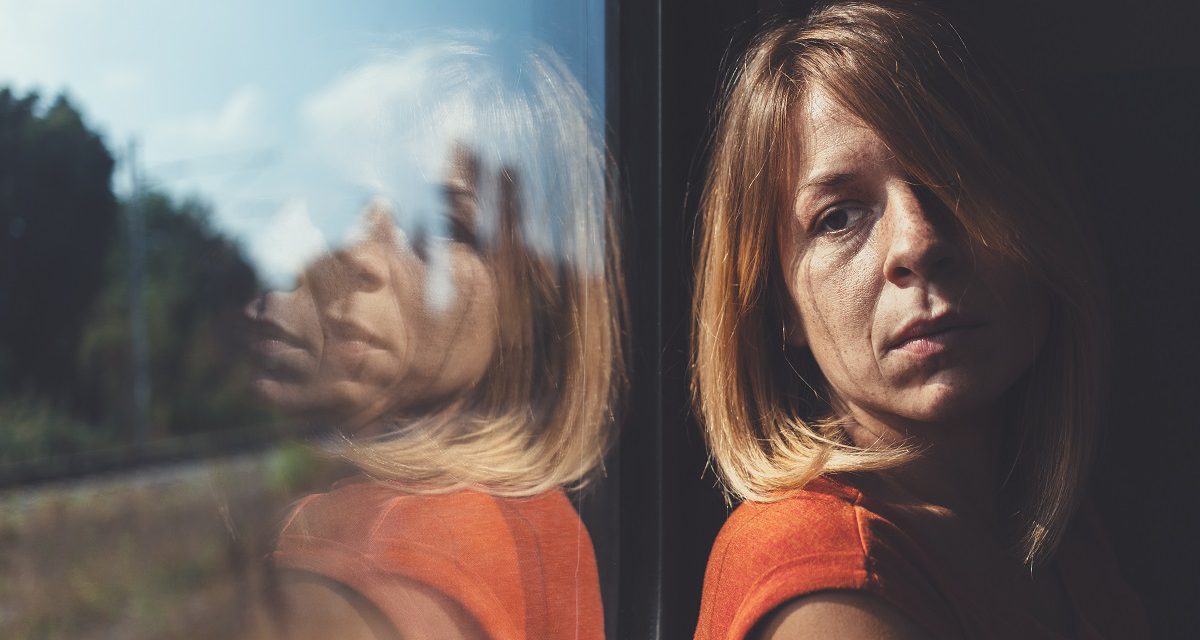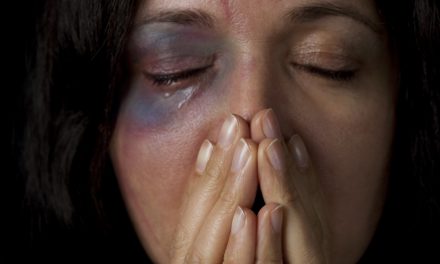September is National Recovery Month, an annual observance celebrating the gains made by those recovering from substance use and reinforcing the message that recovery is possible. Because substance use is a heavily stigmatized and often taboo topic, National Recovery Month aims to educate Americans about the intersection of addiction with behavioral health and share success stories of loved ones overcoming the resulting challenges. Personal recovery testimonials increase awareness and understanding about mental health and substance use, as well as empower those struggling to seek support.
The 2021 National Recovery Month theme, “Recovery is For Everyone: Every Person, Every Family, Every Community,” reminds people in recovery and their support systems that no one is in this journey alone. According to the Association for Addiction Professionals, this year’s observance promotes and supports evidence-based treatment and practices, the importance of a strong and proud recovery community, and the dedication of service providers and community members.
Peer support is a pillar of addiction recovery, especially within groups such as Alcoholics Anonymous, Narcotics Anonymous, their family-centered counterparts AlAnon and NarAnon, and faith-based groups like Celebrate Recovery. Peer recovery specialist Tamara Lane and NarAnon Midwest region delegate Theresa Cleaves are just two of many community members using their personal experience with addiction to help others navigate their own recovery journey.
Lane is a peer recovery specialist at the Health Care Collaborative (HCC) of Rural Missouri. After developing and enduring an addiction to methamphetamines for nearly nine years, she will be celebrating five years of sobriety this November. Finding support in the peer group Celebrate Recovery, she became determined to serve her community in a larger way. When HCC added two counseling positions to their behavioral health team, fellow peer recovery specialist Will Jordan accepted first and immediately recommended Lane join him. Together, they provide education, resources, and support to rural Missouri residents navigating substance use and recovery every step of the way.
Though Cleaves grew up in the presence of alcoholism, she did not fully understand the gravity of addiction until discovering it among her older two daughters during their junior high and high school years. Navigating the addiction and relapses of both women throughout their lives brought with it a rollercoaster of emotions and challenges. In 2014, Cleaves lost her eldest daughter to a complication from a drug-related incident, resulting in a devastating grieving period for the family and seemingly impossible recovery for her second daughter.
Seeking advice from her daughters’ sober friends and rehabilitation programs, she eventually turned to NarAnon, a counterpart program to Narcotics Anonymous which educates family and friends of addicts and helps them cope, make amends, and practice self-care. Finding strength and purpose in the NarAnon community, Cleaves has participated in the volunteer-run organization for 11 years, and will be stepping down from her current service role to resume being an active member this October.
Addiction is a Disease
Lane, diagnosed with adult ADHD and medicated with Ritalin when younger, found that methamphetamines helped her feel balanced as an adult. Following incidents of domestic violence and two unsuccessful marriages, the habitual high allowed her to cope with feelings of unworthiness, fatigue, and more. “Using made me feel invincible,” she said. “It made me happy, like I could take on the world and there was no pain.”
When legal challenges prevented Lane access to her children, she knew she had to make a change. With the support of therapy, psychiatry, and a 12-step program, she built a safety net of people to help hold her accountable. One of her most important connections was a peer recovery specialist, a counselor with lived addiction experience in a role similar to the one she serves in currently.
“I was very lucky. The support I received was massive,” Lane said. “I had my family, sober friends, a case manager, a therapist, a psychiatrist, a sponsor, an accountability partner, the Celebrate Recovery support group, Christian support sisters, and God.” She also stressed, however, that the onus is on the addict to do the footwork. “These things don’t fall into your lap. I had to reach out to these people and ask for their support, making a commitment to follow through and walk all of the programs offered.”
In rural areas especially, stigma surrounding substance use can thwart efforts to find support. Cleaves, who spent most of her life in a small rural town in Maine, experimented with cannabis, psychedelic mushrooms, and the occasional bump of cocaine, but never developed an addiction. She recalled growing up thinking of hard drug users as stereotypical “junkies” who inhabited big cities like New York and Detroit. The realization as a mother that her teenage daughters used heroin not only shocked her, but also brought feelings of shame and embarrassment, especially when police frequently called her work to discuss their latest bouts of trouble.
“It’s not that it should carry shame with it, but you feel what you feel,” Cleaves said. “People can say, ‘Oh, it’s not your fault,’ but you know just as many people are saying, ‘It is her fault, she’s their mother for heaven’s sake, how can you not have any control over your kid?’ It affects all of your relationships. You feel very isolated and alone. You don’t want to talk to the neighbors, secrets form. People can live many years with secrets and have no one know what’s going on in their home.”
Strength in Community
Cleaves eventually found support in a recovering addict and close family friend who remained in the picture throughout the ups and downs of her eldest daughter’s recoveries and relapses. She’d turn to him with the questions that old nursing school textbooks and Google couldn’t answer – what is this I smelled on her breath? What is this thing I confiscated from her room? How do I ask or find out if she’s high if I can’t prove it?
For about a year he acknowledged that she may simply need her own support group meeting. While NA and AA meetings teach addicts to navigate their relationship with substances, NarAnon and AlAnon meetings teach family and friends how to navigate their relationship with their addicts. “NarAnon became my church, my place of learning, my place to not be alone and my place of support,” Cleaves said.
Peer-led addiction support groups help addicts manifest a better life for themselves by showing them the possibility of recovery as well as offering a community of people to help along the way. “The goals in NA and AA are based on attraction,” Cleaves said. “In order to get clean, you look for what you want, and you do what that person’s doing; that usually leads addicts into NA, because that’s how they’ve seen their friends do it.”
“The same is true once you get into the room,” she continued. “You say, ‘That person – she has her act together.’ Knowing how it’s been, living in your body, and then seeing someone who’s in the same situation but is happy and living a productive life – that’s why they stay. They can see themselves possibly healing as well.”
Once an addict has found this person to connect with who motivates them, they may ask them to be a sponsor. Sponsors in NA and AA help hold addicts accountable and reach sobriety by setting and tracking goals, offering guidance and support, and serving as a lifeline during moments of weakness. As addicts reach sobriety, they often continue attending meetings to maintain accountability. Eventually, they become sponsors themselves, continuously building on a wide variety of lived experiences and then sharing that within the community.
While this communal support is crucial to recovery, Lane warned it does not happen overnight. “The support I got, I had to do the footwork for,” she said. “My peer recovery specialist didn’t do that for me. I made phone calls thinking, ‘Who’s willing to help me, who has my back?’ Because I showed I was making those changes, they just crawled out of the woodwork.”
Recovery is Possible
Though recovery is not immediate, it is possible. Lane’s accomplishments after one year in her peer recovery specialist role include owning a vehicle and five-bedroom house and recently appearing on the front page of the Lexington news. Most of all, Lane is excited to have her family back now that she is sober. “I have my kids back in my life and they trust me. My grandkids are back in my life. My parents are so tickled pink they can’t even speak!”
“I don’t have to look over my shoulder anymore and worry that the cops will pull me over and I’ll go to jail,” she continued. “I don’t have to worry about where I’m going to sleep tonight or if I can afford food. I don’t have to worry about when I’m going to get high or how I’m going to get high. I’m a pillar of my community, and that feels really good. People trust me and look to me. I can see the changes that they’re making.”
Because rehabilitation program options can be limited due to lack of funds or insurance, Cleaves recommends starting the recovery journey with a group like NA. “It’s free, you’re hooked up with a sponsor right away, and that sponsor keeps a close eye on you. They won’t be responsible for you, but they will fill your days and get you to 90 meetings in 90 days. They will make sure you’re doing your part of the program – if you want that.”
Find NA and AA meetings near you. For immediate or emergency support regarding substance use and mental health, call the SAMHSA 24/7 hotline at 1.800.662.HELP (4357).
For assistance overcoming substance use and addiction, or information about a local peer support group, contact peer recovery specialists Tamara Lane (660.251.8016) or Will Jordan (660.251.3793). Call HCC at 660.259.2440 for questions about Medical Assisted Treatment (MAT) and other services offered for addicts who may need help getting clean.
Listen to Tamara Lane discuss her recovery and peer counseling role in the latest HCC podcast. Also, listen to Theresa Cleaves discuss her experience navigating addiction as a mother for the accessHealth podcast: part one.








